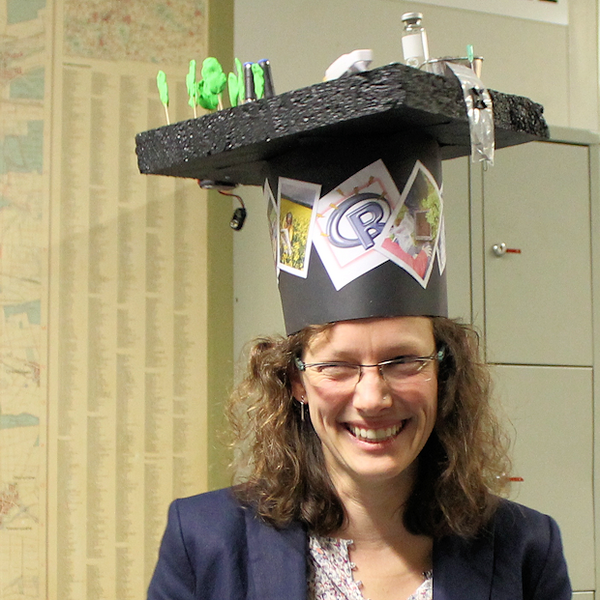
On 26.01.2015, Katja Walter successfully defended her doctoral thesis on climate mitigation potential of bioenergy at the TU Braunschweig. The work named „Climate mitigation potential of annual and perennial bioenergy crops – Focusing on soil processes influencing the greenhouse gas balance” aimed at comparing different bioenergy crops regarding their contribution to greenhouse gas reduction.
The greenhouse gas emissions during bioenergy crop production were investigated because they could not accurately be assessed so far. In particular, soil carbon sequestration under short rotation coppices (SRCs) and N2O emissions of the production of different annual and perennial bioenergy crops were studied. Therefore, N2O emissions of poplar SRC, grass-clover and annual crops like silage maize, winter wheat and winter oilseed rape were determined at two sites for 2.5 years.
The study sites in Thuringia and close to Göttingen were established within the BMBF funded joined research project “BEST” (strengthening bioenergy regions) and were used to investigate many different aspects of bioenergy crop production. Katja Walter has worked on the BEST work package “climate mitigation potential” since 2011.
The results of her greenhouse gas measurements were less distinct than expected. The N2O emissions were generally low due to dry weather at the Thuringian site. Here, the differences between the bioenergy crops were very low. At the other study site close to Göttingen, the N2O emissions per hectare of the well-established, unfertilized poplar SRC and grass-clover were 93% and 47% respectively lower than those of the winter wheat field. Despite the large number of sites (21 sites in Germany) included in the field study on soil carbon sequestration under SRCs, no general change in soil organic carbon stocks was detected.
Nevertheless, the fast-growing trees performed better than the management-intensive, annual crops or grass-clover. Using poplar chips of one hectare SRC in the local heating plants finally reduced greenhouse gas emissions by 7.4 to 11.4 Mg CO2 equivalents per year.

![[Translate to English:] [Translate to English:]](/media/_processed_/6/4/csm_titel_CO2Kampagne8_afeea2273e.png)
![[Translate to English:] [Translate to English:]](/media/_processed_/4/1/csm_titel_93px_CO2Kampagne8_9b0f3354d4.png)





